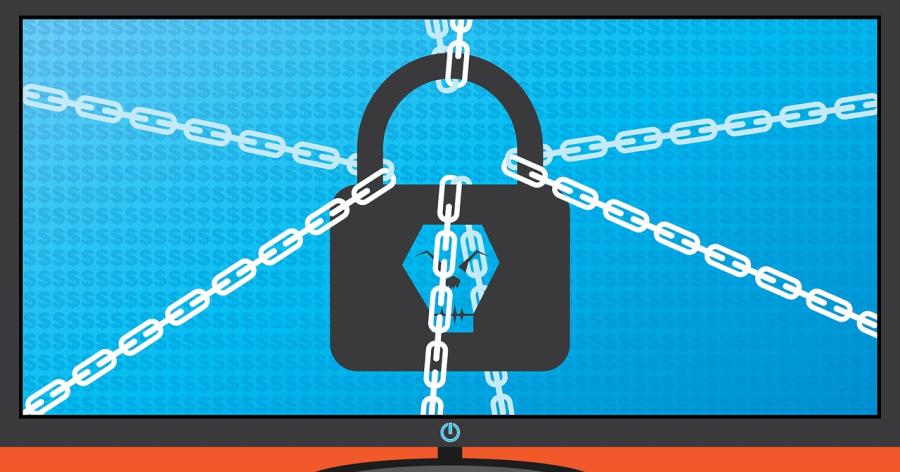With the introduction of 5G, the future of fast mobile internet is getting better, but not without bigger risks. Like everyone else who uses the web to get information, learn, and get entertained; online privacy remains at stake. A simple mistake can land you in big trouble. It could be using an outdated web browser or failing to update my anti-virus software. With these risks, a question most people always ask is how safe is the World Wide Web? Also, are there internet privacy laws that ensure my online safety?
What does the Online Privacy Protection Act (OPPA) mean for me?
- Protection against breach of personal privacy
- Enforces punishment on Non-compliance
- OPPA protects my and your children against internet exploitation
- OPPA helps ensure websites are safe for internet users
- OPPA protects internet users from harmful web content

The truth is that over the years, governments around the world have made steps in making the internet safer for everyone. These laws vary depending on the purpose for which they were enacted. A good example is the Online Privacy Protection Act (OPPA). Like every other internet law in existence, whether state or federal law, OPPA lists certain things about the web that every internet user should know. To a great extent, OPPA protects internet users against exploitation by online businesses and other entities. Whether it is a bank, government, or7 a business entity rendering its services online, the law lists procedures that must be followed to ensure the safety and privacy of web users.
Contents
OPPA: What It States
First off, take note that OPPA is one of many internet Acts that protect you and me on the web. The Act requires online businesses and services to publish and make public online privacy policies. The Online Privacy Protection Act is useful in every part of the world. It is very specific to websites that collect information about visitors. The catch with this law is its emphasis on personally identifiable information, usually abbreviated as PII. A major anchor of this law is discloser of a privacy policy which must state how a website collects, process, and uses personal information.
Moreover, OPPA is very specific on how a website should display their privacy policy. It states that the policy or a link to it should be published strategically on the home page so that website visitors can easily access it. It goes on to state that any online business that fails to do so faces a risk of civil litigation. However, there are exceptions when it comes to the application of the Online Privacy Protection Act. For example, internet services providers (ISP) and/or entities that store or transmit PII to third parties are exempt. Over the years, OPPA has been extended to protect the violation of online privacy beyond websites. Smartphone companies and mobile app developers who unlawfully access PII are equally liable to civil litigation.
Thus far, it is evident that the Online Privacy Protection Act is more inclined to protecting consumers of web services/internet users than website owners or people who run an online business. However, before we explore what the law means to me and you, let’s define a few terms to make it understandable for everyone reading this post.
What is Personally Identifiable Information (PII)
You must have come across the term Personally Identifiable Information on the web many times and probably wondered what it means. Well, most internet privacy and security protection refer to PII are the mainstay of legal enforcement of cyberspace laws around the world. Simply put, PII denotes information or data web services/websites collect about internet users. PII is the most basic yet very sensitive information about internet users. It could be my physical address, telephone number, first name, last name, street, gender, birthday, social security number (SSN), and any other information that identifies my person.

The risk of collecting personally identifiable information is the ability to share or transmit it anywhere on the web. Also, taking note that some websites have been caught in the act of fraudulently using PII to target internet users with unsolicited adverts, it goes that protection of privacy on the web is a critical concern in the world today. Think about the various ways through which websites can collect PII and the risk that comes with such information ending up in the wrong hands. You realize that the internet, even with the laws already enacted, is not a safe place. It will never be. These laws help governments and law enforcement agencies check and control the behavior of citizens on the web. If need be, the same laws help law enforcers administer punishment on entities of persons found culpable of breaching internet laws.
OPPA and Website Policy: Important Thresholds
Another mainstay of the Online Privacy Policy Act is thresholds that website policies should meet. A website policy is definitively a document or a publication highlighting how an online entity collects personally identifying information, processes, uses, shares, or stores it. Under OPPA, privacy policy on any website should meet the following minimum thresholds:
- The policy should describe a process that website owners use to inform customers about a change in any part of the whole of their privacy policy. Given the rate at which the internet changes, especially with the introduction of high-speed bandwidths like 5G, internet users should expect a lot of changes now and in the future. To better prepare for any changes, a privacy policy should state clearly how such changes affect user privacy.
- It must notify consumers about the date it comes to effect. Whether the policy is already in use or will be affected in the future, internet users should know when it happened or will happen.
- It should also state a process through which consumers can request a change to their personally identifiable information. Some information internets users may want to change include but not limited to a physical address and telephone number.
- The policy should also list categories of PII that a website collects from internet users. This is important because some websites breach the online privacy of internet users by collecting information that is not listed in their privacy policy. Should this happen, especially when customers are fully aware of the kind of information they share, taking litigation measures against such websites for breach of privacy becomes easy.
- A privacy policy that conforms to the Online Privacy Protection Act should also state third parties with which a website shares PII and the purpose for which it does so. On the web, there is a real chance that personal information you submit to websites is accessible to third parties such as advertisers and government agencies. However, when this is stated on privacy policy, internet users become more cautious about the kind of information they share online.
What Does OPPA Mean For Me?
Thus far, let’s answer the big question. What does the Online Privacy Policy Act mean to me and you? Well, considering all the above, it goes that your online privacy does not start or end with sharing private information on the web. Laws that govern the conduct of businesses on the web help protect you and me from unwarranted breach of privacy. Most notably, there are sub-divisions of the laws that protect internet users of all ages from the prevailing risks of a privacy breach.

● Protection against breach of personal privacy
Without internet laws like OPPA, website owners would get away with every cybercrime. Even worse, cybercriminals will conduct their activities in the glare of everyone because they know no one would come after them. Look at it from a perspective of jungle law, where everything is about survival for the fittest. The internet is like one big jungle where everyone displays their smartness and arrogance. Hackers seem to have a field day here, and so are governments that snoop and spy on everyone. The Online Privacy Protection Act protects me against breach of personal privacy by the mentioned entities, in which case, I can browse the web anonymously without anyone forcing me otherwise.
● Enforces punishment on Non-compliance
OPPA isn’t just a law that states actions that amount to a breach of personal privacy on the web. It also highlights punishments or legal actions internet users can take against companies to do not respect their request for privacy. The most notable consequences that come with failing to comply with OPPA include but not limited to the following:
- Persons whose online privacy has been violated can file civil litigation in a court of law to contest the unfair use of PII.
- Persons who have enough evidence to prove a breach of online privacy can also seek compensation for a privacy violation.
- Violates of OPPA can be subjected to punishment under the Federal Trade Commission Act, especially online businesses that post or publish deceptive privacy policies.
● OPPA protects my and your children against internet exploitation
Children’s Online Privacy Protection Act (COPPA), which is a subset law of OPPA states actions that amount to violation minors’ privacy on the web. Make no mistake about it. Minors are the most vulnerable on the web hence prime targets of hackers. From adult websites target social media bullies, the privacy of minors is always at stake. It is why; COPPA, an internet privacy law that protects children from cybercrimes exists.
The Act is enforced by the Federal Trade Commission and applies to the following situations:
- Internet services, websites, or businesses that target children under the age of 13 years. It states that parents must consent to information websites collect from children.
- Businesses and services that have actual knowledge that the PII they collect is from minors aged 13 years and below.

● OPPA helps ensure websites are safe for internet users
While a larger percentage of OPPA advocates for collecting information from internet users about which they are fully aware, there is more. It is also noteworthy that the Online Privacy Protection Act enforces the protection of internet users from unsafe browsing. Sometimes a violation of privacy on the web happens because websites do not have security features that protect visitors from privacy violations. For example, websites violate the privacy of users in the following ways:
- Websites that do not have an operation license pose a huge risk to internet users. Usually, and of course, depending on a host, websites should renew their hosting licenses after some time. Sites that are outdated are always flagged by Google as a potential risk to internet users.
- Websites that do not have appropriate, proven, and licensed security features are also a risk to online privacy. In this case, think about websites that do not have encryption certificates such as SSL or run on insecure protocols such as HTTP instead of HTTPS. Cybercriminals who steal PII from internet users often target insecure sites.
- Another notable way through which OPPA protects internet users through enforcement is that it requires websites to publish their privacy policies. Come to think about it. You visit a website without asking whether they have a privacy policy and end up losing private information. However, with OPPA, virtually all websites have a user privacy policy published for everyone who visits to see. The policy must be linked to the homepage of any site.
- Moreover, OPPA defines how websites collect information, the kind of PII they collect, how they use, process, or share it. Blindly submitting personally-identifying information to websites would amount to a greater risk of online privacy violation. However, a question that comes with this is do internet users read cookies before accepting them? Well, that is a topic for another day.
● OPPA protects internet users from harmful web content
The internet is a huge space whose size is immeasurable. And with millions of content cutting across videos, blogs, news, images, and social media posts published on the web every day, it becomes difficult to distinguish harmful from useful content. It is especially the case among internet users who click anything. Also taking note that some instances of malware attack happen because of downloading suspicious files, internet users cannot survive a barrage of cybercrimes that come their way every day with laws that regulate content publication.
While OPPA is very specific on how websites collect information from internet users, it also implies the kind of content websites that meets safety standards and procedures businesses should observe when publishing anything that the general public can access.

In a nutshell, OPPA prioritizes the safety of internet users above everything else. If you thought the internet is always going to be unsafe, you should carefully read through provisions of the Online Privacy Protection Act to understand how you can stay safe online. However, while OPPA means so much to you and me, a question everyone who uses the web should ask is are they doing the right thing?
Violating your online privacy
Well, the danger with the internet is that it gives users so much freedom that sometimes we become violators of the privacy we enjoy. Whether you are fully aware of it or not, the following are ways I or you may be violating your online privacy hence breaching some OPPA provisions:
The excitement that comes with using social media equally puts me and you at greater risk of a privacy violation than imagined. Because of this, the first question everyone who uses social media should ask is how much I am sharing with Facebook friends? Do they deserve to know everything about you on social media after all? The truth is that social media users share too much about themselves to the extent that they lose control of private information. From publishing email addresses, telephone numbers, physical location to pictures of minors, you are exposing yourself to prying eyes of hackers.
● You are using unsafe browsers
The world’s most trusted browsers are Google Chrome, Safari, and Microsoft Edge. Coincidently, they belong to the world’s most popular tech giants and internet service providers. However, a worrying trend is cropping up among internet users, and it is especially fueled by the smartphone revolution. Today, millions of internet users access the web using browsers with questionable security features. In the end, everyone ends crying foul about privacy violations.
It is also worth noting that in as much as the internet is a free space, it comes with risks and limitations. As an internet user, knowing my limitations, especially when I can control the amount of information I share online is important. Think about it in the context of Google chrome privacy settings or Facebook privacy settings. Right now, if you can navigate to the privacy section in your Facebook account, you might be shocked at how much information you are sharing with the webmaster.
● Your device does not have updated anti-virus protection software
For the umpteenth time, anti-virus software/program is the key to securing your privacy online. It is especially useful in protecting your identity for cyber theft. A trusted anti-virus will not only give you a secure and safe browsing experience but also protect your most vital information against cyber attacks.
Final Thoughts on OPPA
The One Privacy Protection Act (OPPA) is a comprehensive legal document that spells out important procedures that online services should follow to protect the privacy of their customers. Moreover, it states important clauses that create internet user awareness on matters relating to safeguarding personally-identifying information. We hope this document helps you understand and do the right thing online.



